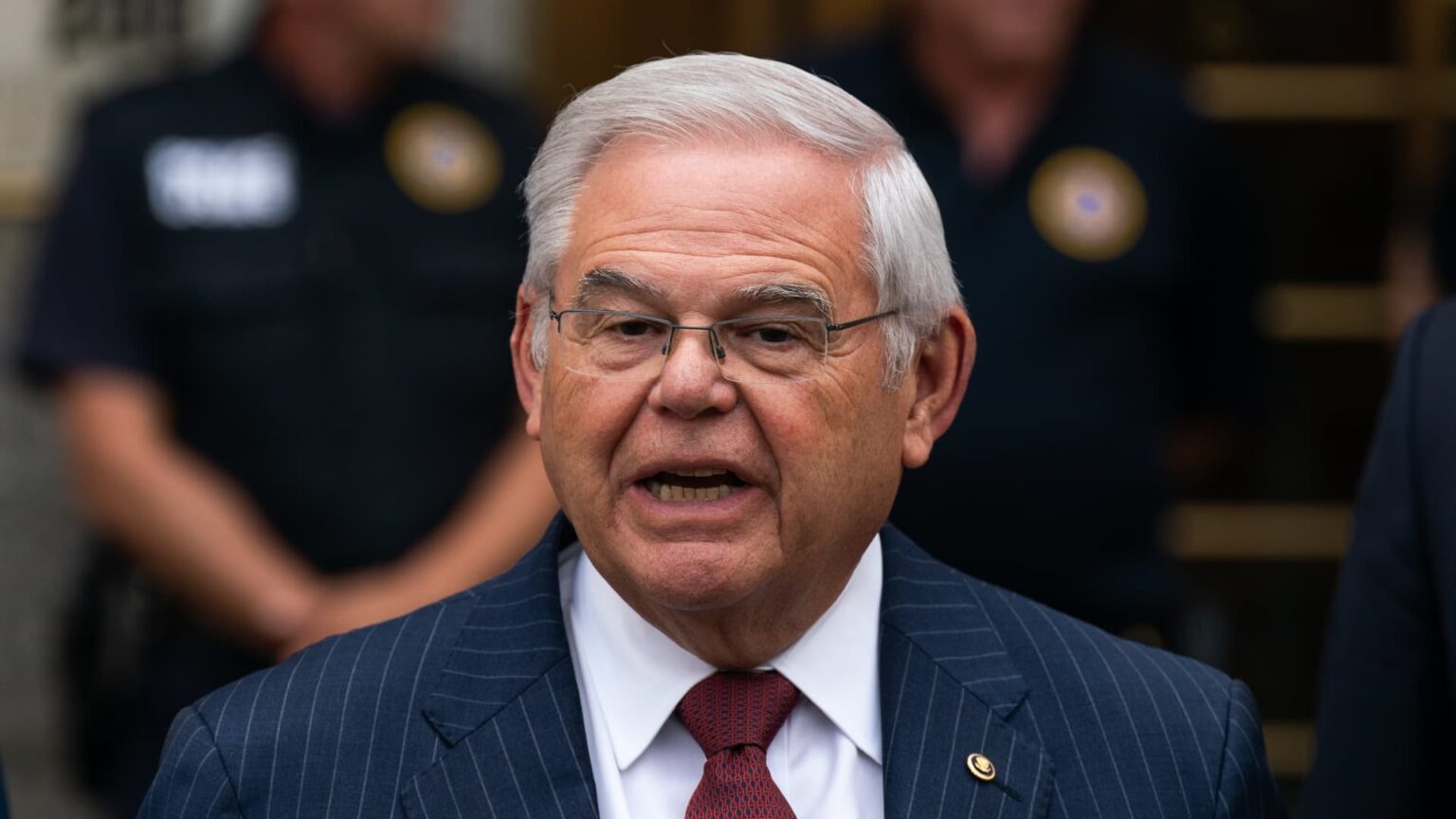WASHINGTON — Sen. Bob Menendez, D-N.J., has told allies that he will resign from Congress after being convicted on federal corruption charges, two people directly familiar with those conversations tell NBC News.
Menendez, who had been defiant for months in the face of calls from dozens of Senate Democrats to resign, appears to have finally relented after the guilty verdict and growing threats to expel him if he refused. His announcement would end a three-decade career in Congress that included a powerful committee chairmanship, writing major legislation and two criminal trials over allegations of corruption.
Among those who urged him to resign were Senate Majority Leader Chuck Schumer, D-N.Y.; Senate Majority Whip Dick Durbin, D-Ill.; and Menendez’s friend and fellow New Jersey Democratic senator, Cory Booker.
“In light of this guilty verdict, Senator Menendez must now do what is right for his constituents, the Senate, and our country, and resign,” Schumer said in a statement after Menendez’s latest corruption trial ended in guilty verdicts.
The senator was convicted Tuesday on 16 federal counts related to using the power of his official position to enrich three New Jersey businessmen and benefit the Egyptian and Qatari governments. In exchange, the couple received lavish bribes, including “cash, gold bars, payments toward a home mortgage, compensation for a low-or-no-show job, a luxury vehicle and other items of value,” prosecutors said.
If Menendez does step down, New Jersey Gov. Phil Murphy, who was among the first Democrats to call for Menendez to quit, will appoint a senator to temporarily finish out his term, which ends in January 2025.
Democratic Rep. Andy Kim and Republican Curtis Bashaw are running in the November general election to take Menendez’s Senate seat.
Menendez’s political career dates back nearly four decades to the mid-1980s, when he became mayor of Union City. He eventually served for 13 years in the House before ascending to the Senate in 2006. He had two stints as chairman of the Senate Foreign Relations Committee, a post he relinquished last year after his indictment. But he remained a voting member of the panel and in the full Senate, even while he was accused of abusing his power to benefit foreign governments.
Menendez and his wife, Nadine, were charged in September with conspiracy to commit bribery, conspiracy to commit honest services fraud and conspiracy to commit extortion under color of official right, according to the initial indictment against him.
Weeks later, he was charged in a superseding indictment with accepting bribes from a foreign government and conspiring to act as a foreign agent. Menendez “provided sensitive U.S. Government information and took other steps that secretly aided the Government of Egypt,” the indictment alleged.
Menendez denied the allegations against him, arguing in a statement that he was facing “an active smear campaign” and that prosecutors “misrepresented the normal work of a Congressional office.” He has since said he will appeal his conviction.
In public remarks in September, he said the $480,000 in cash investigators had found squirreled away in envelopes hidden around his house was money he’d saved over decades to be used “for emergencies.”
In 2015, Menendez was also indicted on federal corruption charges stemming from allegations that he accepted favors from a wealthy Florida optometrist, including travel, accommodations and political contributions. The case ended in a mistrial after jurors could not reach a unanimous verdict. Prosecutors in 2018 opted not to retry Menendez after the judge overseeing the case tossed out some of the original counts.
Menendez is the first sitting senator in U.S. history to be indicted on two unrelated criminal allegations, according to data compiled by the Senate Historical Office.
The son of Cuban immigrants, Menendez was one of the Senate’s most prominent advocates for overhauling the immigration system and co-authored the “Gang of 8” bill in 2013, a bipartisan immigration overhaul that passed the Senate and died in the House. Last year, he introduced a framework to reform immigration programs that included creating new pathways to citizenship amid ongoing concerns about the number of migrant crossings along the southern border.
Read the full article here










